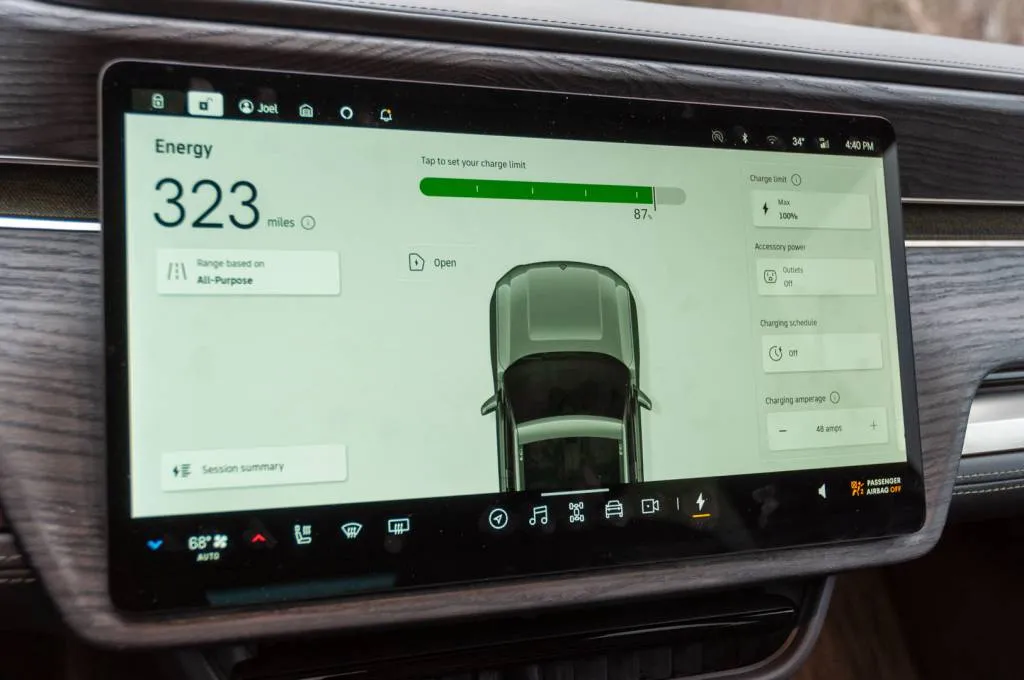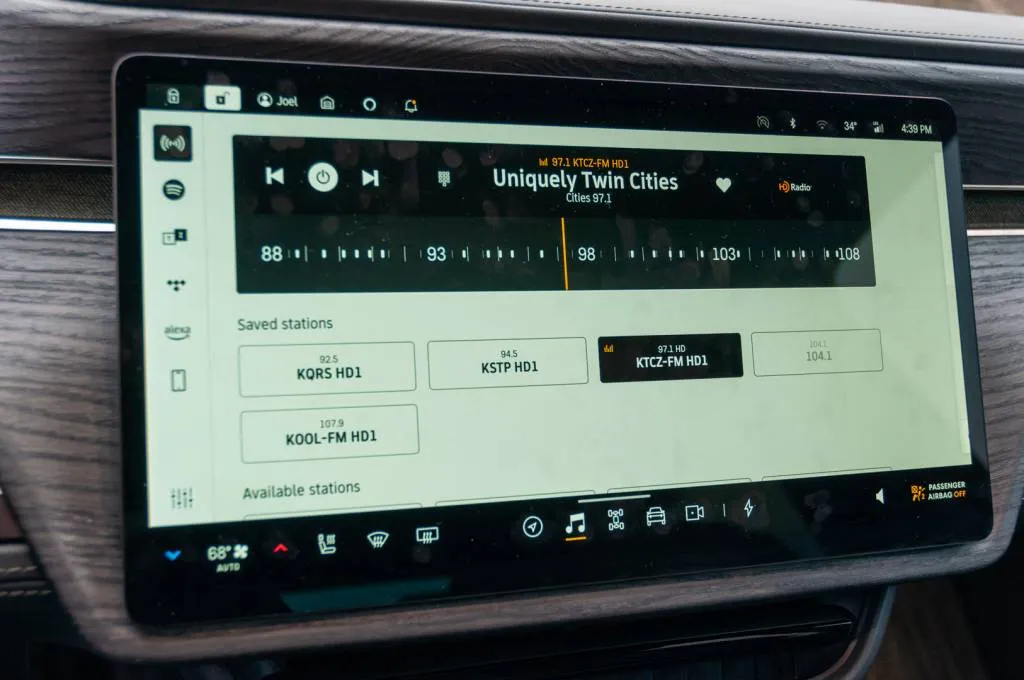Two years after driving away with the Motor Authority Best Car To Buy 2022 award, the Rivian R1T still leaves me awestruck.
The most versatile vehicle on sale today has gotten better over time, with updated software, and easy-to-use information-filled interfaces, while continuing to provide plenty of power and the most innovative packaging of any vehicle money can buy. And Rivian has added more choices in additional battery pack sizes and motor configurations.
But there’s room for improvement in smartphone integration; there’s no locking differentials on Dual-Motor models; and a handful of usability annoyances in everyday situations could be rectified.
Here are the pros and cons of the 2024 Rivian R1T Dual-Motor Performance Max pack after spending a week revisiting our award winner in its current form.
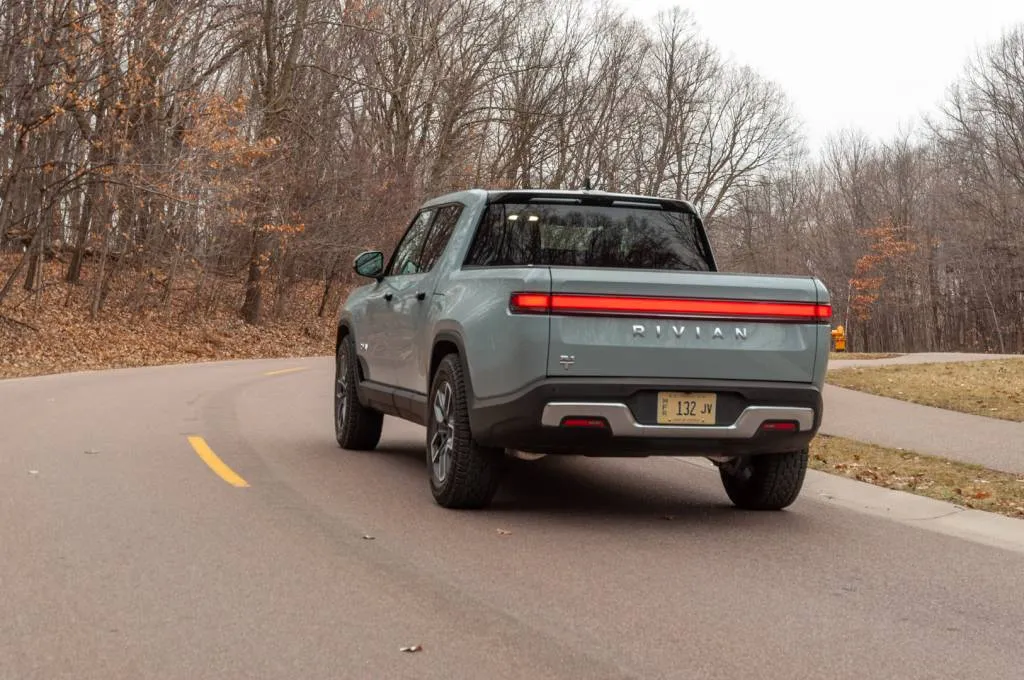
2024 Rivian R1T
Pro: Rivian R1T Dual-Motor Performance packs plenty of punch
The quad-motor R1T the automaker launched with is unnecessarily quick with 835 hp and ability to rip 0-60 mph in 3.0 seconds flat. I judge no one for wanting to pay today’s $8,000 upcharge for the four-motor setup provided by Bosch, but the new in-house designed and built Rivian dual-motor setup is more than adequate. With its 533 hp, Rivian claims a 0-60 mph sprint of 4.5 seconds. My tester was the Performance Dual-Motor model, which costs $5,000 more for software tweaks to the dual-motor powertrain, with 665 hp and 0-60 mph sprint of 3.5 seconds. That’s half a second off the quad-motor model, and it’s more efficient to boot. In the real world 0-60 mph in 3.5 seconds is damn quick in a vehicle that weighs about 7,000 pounds. It’s still rated to tow 11,000 pounds and saves cash. It also can be optioned with my tester’s larger 141 kwh (usable) battery pack, while quad-motor trucks can only be had with the Large 131-kwh pack.
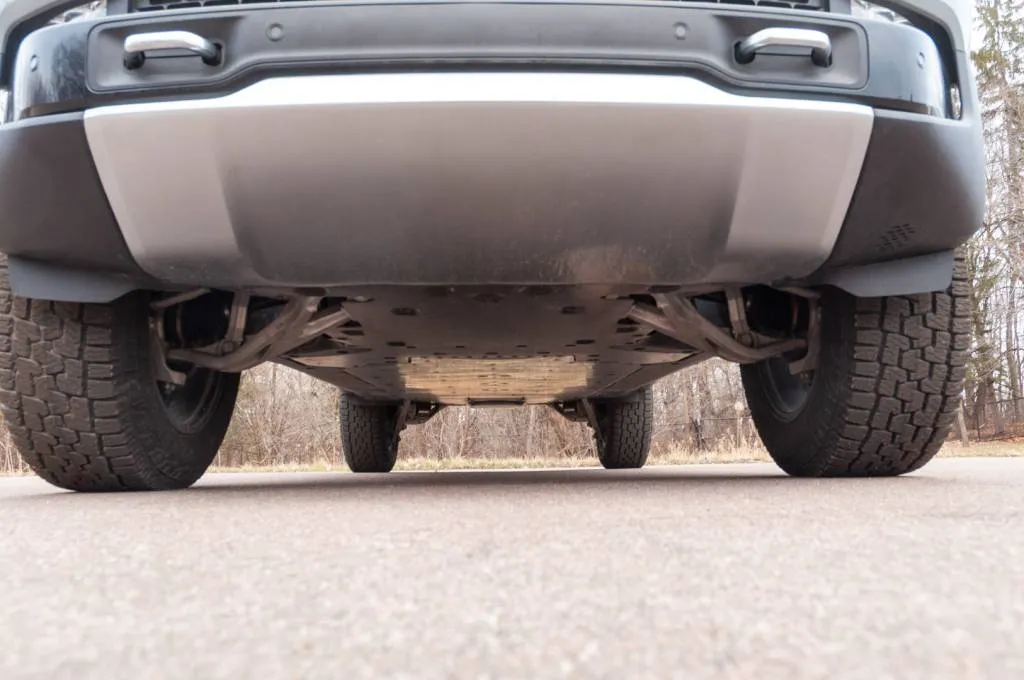
2024 Rivian R1T
Con: Rivian R1T Performance Dual-Motor lacks locking differentials
In an odd packaging decision Rivian didn’t opt to package mechanical locking differentials front or rear on the dual-motor R1T. Quad-motor models don’t need lockers because each wheel gets its own electric motor, but dual-motor models rely on a lackluster brake-based setup. This system relies on software to apply the brakes to control power distribution and continue forward momentum in slippery and off-road situations. For hardcore off-roading this makes the Quad-Motor model more appealing than the Dual-Motor models. The Tesla Cybertruck features locking differentials, but currently the unfinished truck being sold to customers has the hardware but not the software to actually engage the lockers.
Pro and Con: R1T configurations add range, dollars, and confusion
Rivian has expanded the R1T’s offerings to include three drive systems and now four battery pack sizes including base Standard at 106 kwh, $3,100 Standard+ at 121 kwh, $9,100 Large at 131 kwh, and my tester’s $19,100 Max pack at 141 kwh. With all packs featuring the same battery chemistry and previously announced LFP batteries not arriving yet, the build options have become complicated and confusing. The battery pack sizes are starting to feel like splitting hairs.
The Performance Dual-Motor powertrain tested can’t be optioned with the Standard pack, but can be optioned with the other three for a respective range of 315 miles, 352 miles, and 410 miles. It seems as if it should just be the standard powertrain given it’s just software and brings with it Sport mode.
It’s great that Rivian’s giving buyers up to 410 miles of EPA estimated range, but the value is questionable for the Max pack for anyone not living in extreme cold, taking long road trips, or towing. Larger packs mean heavier trucks that lug around extra batteries all the time. The best advice here is buy what you need, and understand the wheel and tire configurations. While 21-inch wheels with street tires come standard, the available 22-inch street tires or 20-inch all-terrain tires will cut the range down. My tester was optioned with the $3,850 All-Terrain package that added the 20-inch wheels, Pirelli All-Terrain tires, underbody protection, and a matching spare tire, which was missing from my tester; it carried an EPA estimated range of 355 miles. The Rivian averaged 1.9 kwh/mi (according to the truck) in chilly temps that dipped into the low 20s at night and almost broke 40 degrees during the day.
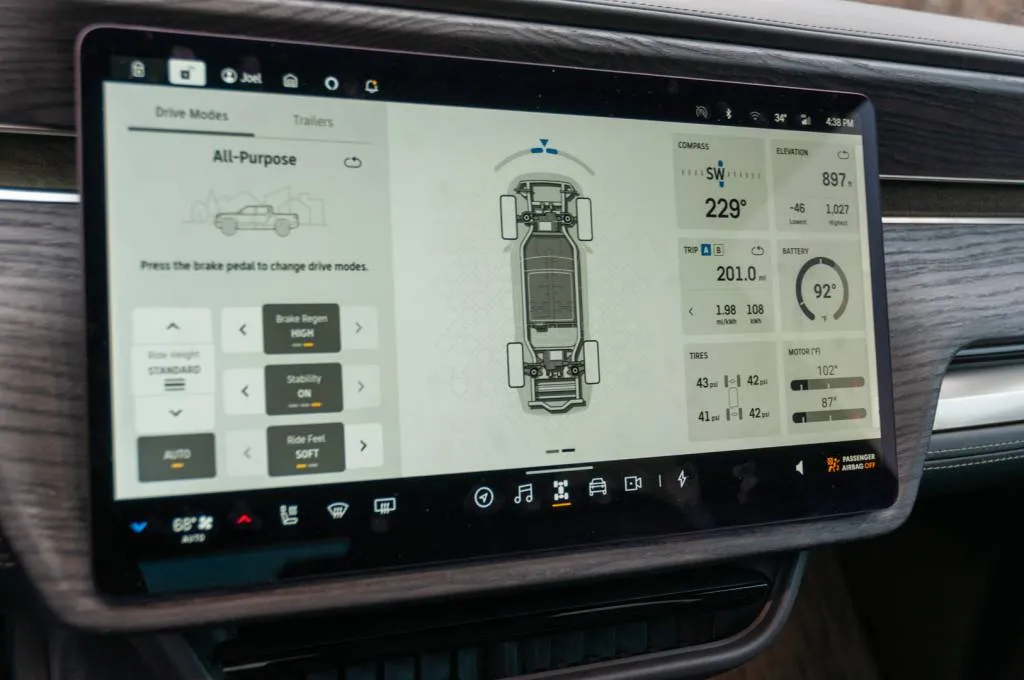
2024 Rivian R1T
Pro: Rivian R1T updated with information-filled interfaces
Since Rivian launched the R1T it’s overhauled a few pages of the truck’s 15.6-inch touchscreen that dominates the dashboard. The drive mode screen can now be swiped left and the screen becomes filled with data including specific motor temperatures, battery pack temp, individual tire temp, steering angle, elevation, compass, trip computer, and trailer settings. It does all this while retaining quick and instant access to climate control settings, and it can go split-screen with whatever information is being shown while displaying audio information and key vehicle controls. Nearly every automaker outside of Tesla should be taking notes and copying Rivian’s homework here. It pays to design your own software in-house.
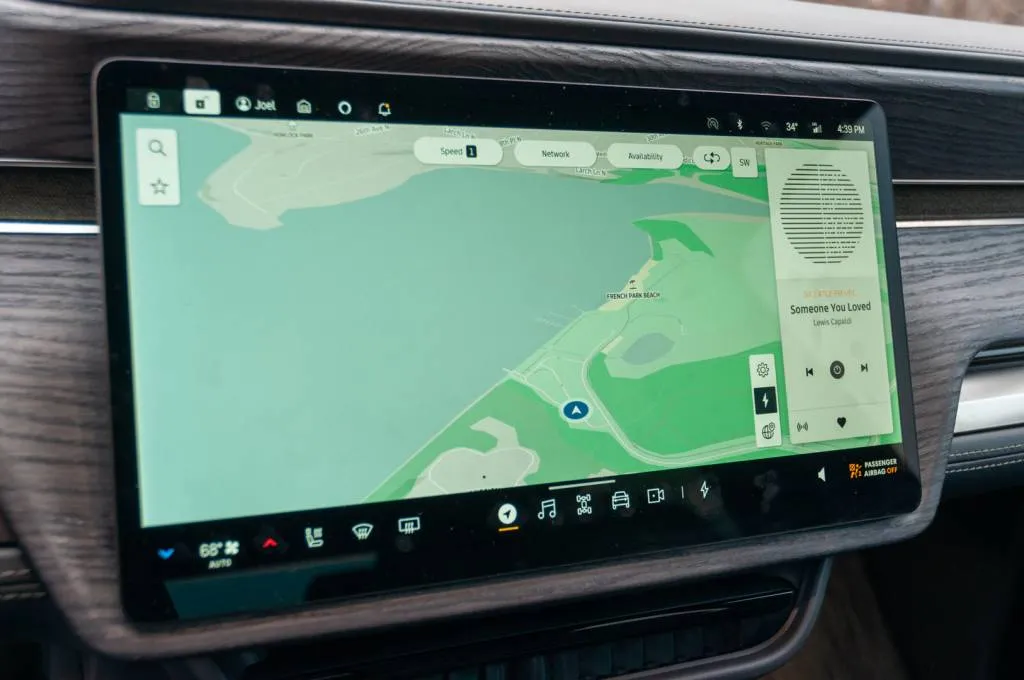
2024 Rivian R1T
Con: Rivian R1T could use better smartphone integration
The R1T doesn’t have Apple CarPlay or Android Auto, and to be honest I didn’t really miss the one that applied to me, CarPlay. The infotainment system is that good. Rivian’s made it so you can click the share button within Apple Maps on an iPhone and share a destination with the vehicle. Slick. But not all aspects feel quite as integrated as they could be. The vehicle downloaded my phone’s contacts including addresses, and while I could pull up a contact in my phonebook on the Rivian’s touchscreen and tap the address for navigation purposes, I couldn’t use voice commands to do the same thing. That’s because that part of the system relies exclusively on Alexa, which didn’t have my contacts. It said I could separately upload my contacts to Alexa, but who wants to do that? Tesla integrated a native Apple Music app, and Rivian should too. Rivian already said it’s working on a solution to enable responding to and sending text messages via voice commands with an iPhone, but hasn’t elaborated how, yet. Perhaps Siri integration is coming, and would solve a lot of these issues.
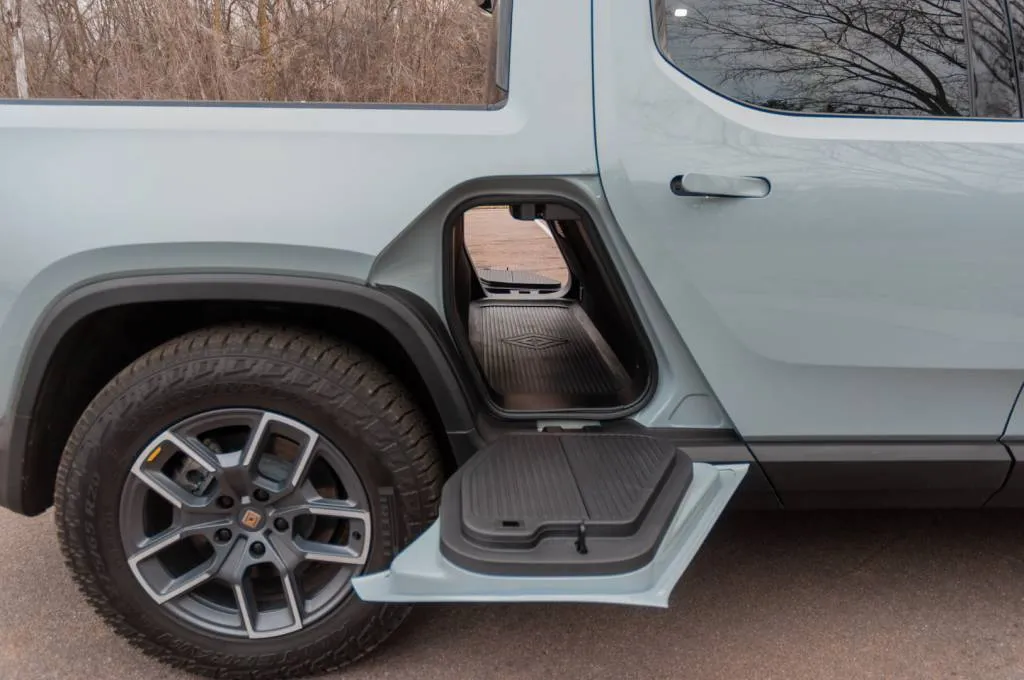
2024 Rivian R1T
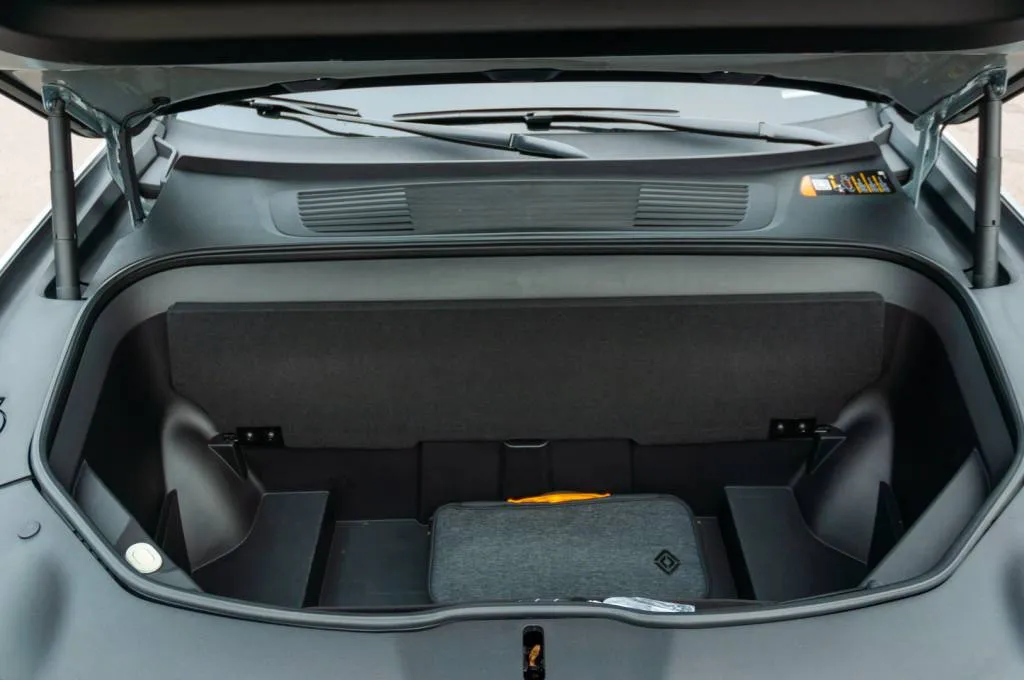
2024 Rivian R1T
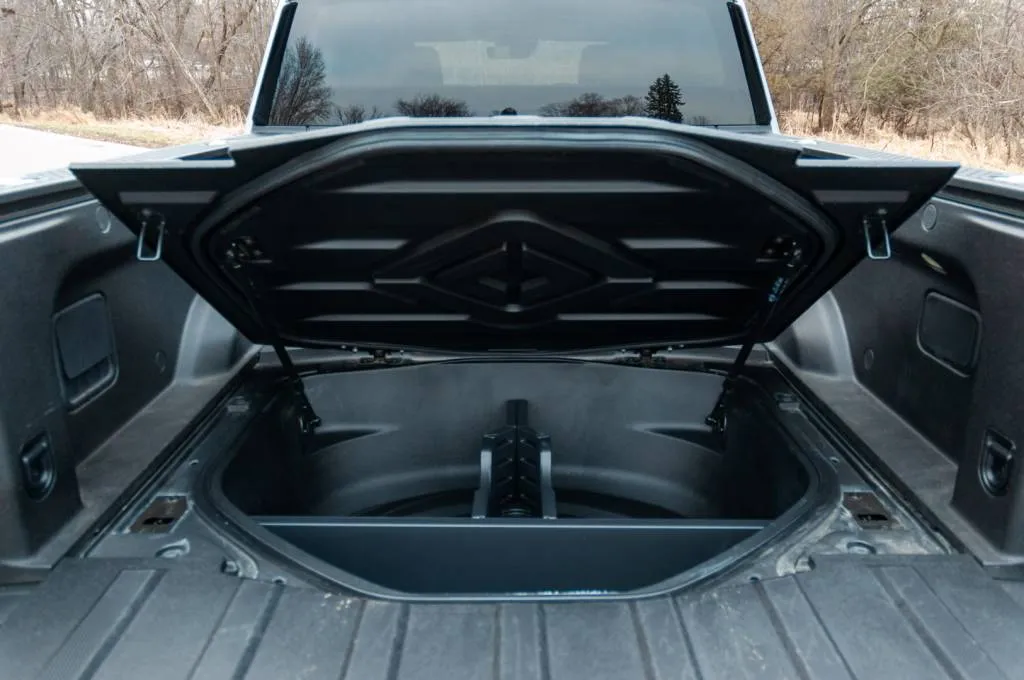
2024 Rivian R1T
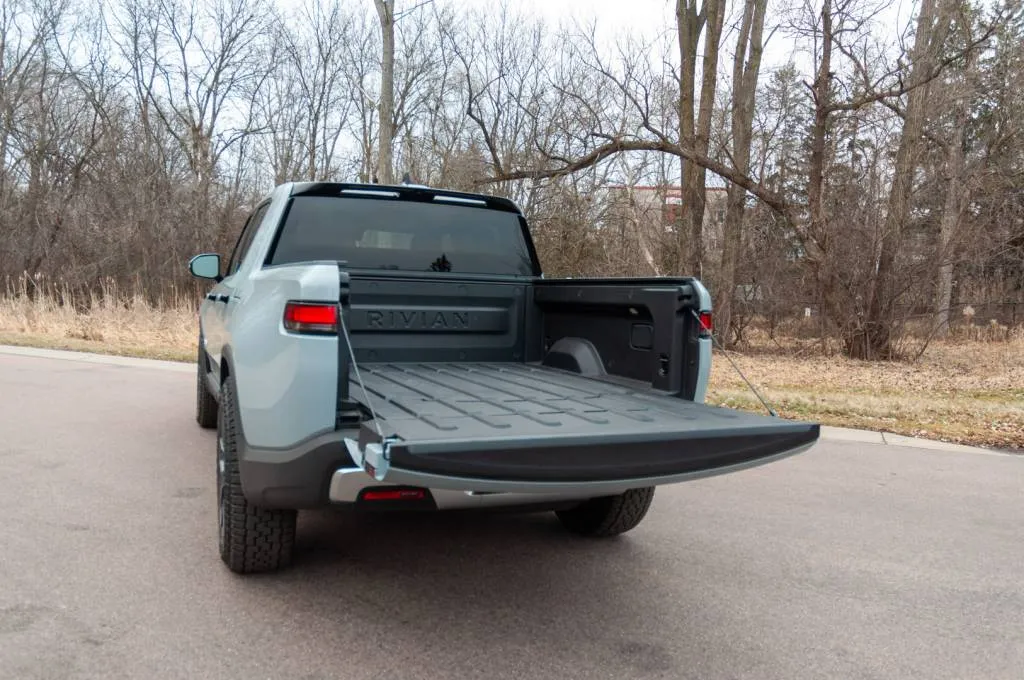
2024 Rivian R1T
Pro: Rivian R1T shocks and awes with its packaging
Two years after hitting the market and six years after being unveiled, no other production pickup on the planet features packaging as innovative as the R1T. The 11.0 cubic foot frunk has a false floor and can be expanded or hide stuff in two layers. The 4.5-foot bed has underbed storage that’s sealed with a gasket. That storage is large enough to hold a full-size spare, something that the Cybertruck can’t do. There’s tons of open space inside the cab, including a place up front on the center floor for a backpack, purse, or computer bag where a traditional center console might sit, and there’s storage under the front and rear seats. But the most innovative bit is the water-tight 11.6-cubic foot gear tunnel, which can securely hide stuff from prying eyes. It’s rated to carry up to 300 pounds. Bonus: The doors for the gear tunnel can be used as a seat, to lace up or click in, or as a step, to reach the roof. Those panels themselves even have built-in storage cubbies.
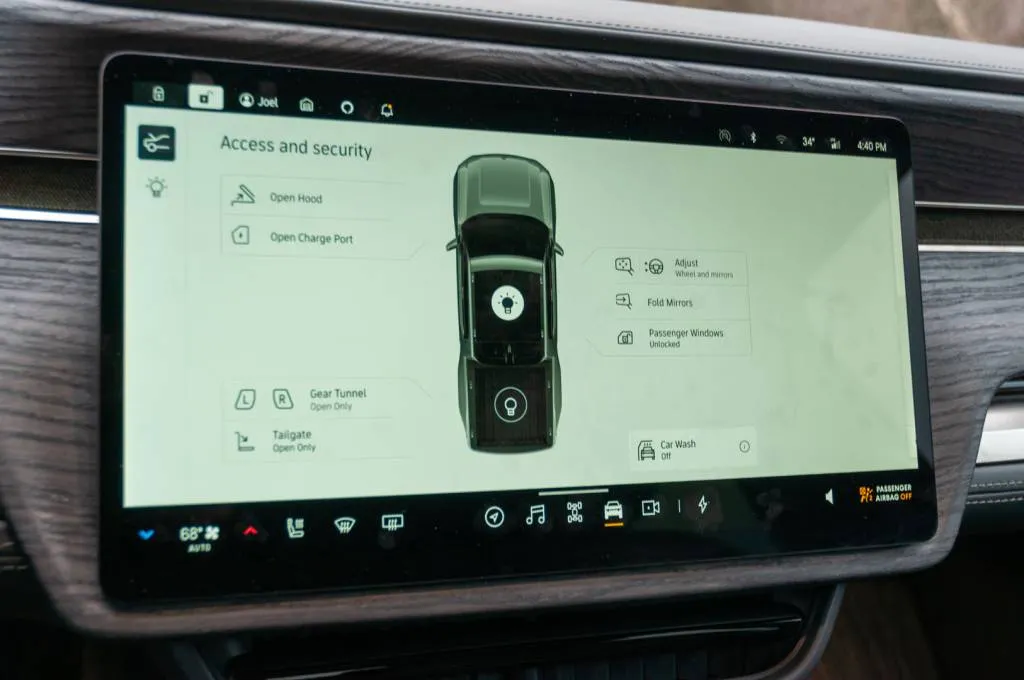
2024 Rivian R1T
Con: Rivian R1T has random, mostly fixable, usability annoyances
When the truck is put in park—even momentarily, as while waiting in a carpool line—the interior LED lights all come on. They should come on either when the doors open like every other vehicle or just have more granular settings. There’s no rear seat seatbelt indicator lights anywhere to alert the driver if rear seat occupants have been buckled in. The 12.3-inch digital gauge cluster is broken up into three sections with the middle of the screen displaying the truck’s speed and the right side displaying whether its powertrain is using power or regenerating it into the battery pack. It’s the left side that’s somewhat wasted as it can show one of three displays: the truck’s tire pressures, the map regardless of whether navigation is engaged, and the truck’s current efficiency over the last 15 minutes. From infotainment to some of that real-time data in the new touchscreen truck information page, there’s more that could be shown on the left side of the digital gauge cluster than these current three options. Also, I still miss having a real volume knob you can just twist, although it’s hard to see how Riivan would integrate it with its current interior design, and the steering-wheel roller knob worked…fine.
After living with the Rivian R1T I can’t shake the feeling it’s one of the best-thought-out vehicles on the market. It’s still not perfect, but two years on, no other vehicle has come close to the R1T’s breadth of capability and performance, or continuous software improvement. The majority of people won’t know the difference between the Quad Motor’s 3.0- and Performance Dual-Motor’s 3.5-second 0-60 mph sprint, but their bank account will feel the difference of $8,000 or $3,000.
––––––––––––––––––––––––––––––––––––––––––
2024 Rivian R1T Performance Dual-Motor Max pack
Base price: $71,700, including $1,800 destination
Price as tested: $101,400
Powertrain: 665-hp Performance Dual-Motor
EPA fuel economy: Up to 410 miles of range
The pros: Performance Dual-Motor satisfies, Max pack range, great infotainment system, innovative packaging
The cons: Lacks lockers, Max pack isn’t cheap, complex build matrix, smartphone integration, minor daily software annoyances and/or missed opportunities



